Carroll, here, was responding to a Weekly Standard cover article on the reactions to philosopher Nagel’s publication of Mind and Cosmos: Why the Materialist Neo-Darwinian Conception of Nature is Almost Certainly False :

What I find particularly interesting in the captioned clip is the laudatory reference to “a more Scientific WORLDVIEW” which is immediately problematic, as worldviews are matters of philosophical points of view and linked cultural agendas. That is, they are categorically distinct from science in any proper sense.
A clue for what is really meant comes from what immediately follows: “and everyone knows that God doesn’t exist.” Really, and how can science actually establish such a thing, especially in a world with literally billions of theists, many being reasonably educated and informed? Plainly, what is actually implied is that in the academy and among the post-Christian Western chattering classes, evolutionary materialistic scientism is a dominant and in fact domineering ideology.
One that, in fact, rather inconveniently has had a 100+ year track record of not just marginalising, silencing or expelling critics or doubters, but a body count northwards of 100 millions. (So much for the snide characterisation of the West’s Christian heritage by the Torquemada standard. [Cf. here on in context on the sins and blessings of Christendom.])
We could make reference to a well known cat out of the bag remark in NYRB by Richard Lewontin on how a priori materialism has been imposed on science, or the like. However, that is liable to simply invite troll rants, let the link stand for those who need to re-familiarise themselves with the record.
Instead, let us simply note that in the captioned, Carroll more than amply confirms the point regarding the cat Lewontin let out of the bag. Where, too, scientism — the notion that, roughly, evolutionary materialism dominated, Big-S “Science” is “the only begetter of truth [and thus, knowledge]” — is immediately self-refuting. For, this claim is a claim about philosophy that tries to discredit such claims. Unfortunately, that is not going to help those trapped in the evo mat cave escape their bonds and delusions. The issue is how to move the Overton Window:

Of course, we have already taken step 1, by headlining and briefly exposing immediately fatal errors on the public record for one of the better known spokesmen for evolutionary materialistic scientism [= “naturalism,” more or less].
What can we do for step 2?
We have to look at warrant for theism (at least at intro to 101 level), and in my view a good place to start is an article responding to a dismissive article that popped up here in the Caribbean about a year ago. Here we go:
>>Over the years, many millions have met and been transformed through meeting God in the face of Christ. This includes countless Jamaicans [and many other people across the Caribbean and wider world]. It also includes many famed scholars, eminent scientists and leaders of powerful reformations. Logically, if just one of these millions has actually been reconciled with God through Christ, God must be real and the gospel must be true. (Where, if instead so many are deeply delusional, that would undermine the rational credibility of the human mind.)
However, for some years now various voices have tried to dismissively question God, the gospel and Christians. So, it is not unexpected to see Mr Gordon Robinson writing in the Gleaner recently (on Sunday, August 26, 2018), about alleged “dangerous dogma promulgated by the Church and its many brainwashed surrogates,” “perverse propaganda spread by Christian churches,” “sycophants” and the like.
Along the way, he managed to ask a pivotal question: “Who/what is God?”
Regrettably, he also implied outright fraud by church leaders: “Either the Church has NO CLUE about who/what God really is, or it deliberately misrepresents God’s essence in order to frighten people into becoming church members and tithing. Nothing else makes sense.”

Fig 1 DNA, Showing the Genetic Code (HT ResearchGate)
In fact, a simple Internet search might give a better answer. For, thinkers such as a Thomas Aquinas or an Augustine of Hippo or a Paul of Tarsus or even a Wayne Grudem or a William Lane Craig have long since credibly addressed the idea of God and systematic theology at a little more sophisticated level than Sunday School lessons or Internet Atheist web sites. In so doing, they have made responsible cases that rise above the level of caricatures of the art on the Sistine Chapel’s ceiling.
We may begin with Paul in Romans 1, 57 AD: “Rom 1:19 . . . what can be known about God is plain to [people], because God has shown it to them. 20 For [God’s] invisible attributes, namely, his eternal power and divine nature, have been clearly perceived, ever since the creation of the world, in the things that have been made. So [people] are without excuse. 21 For although they knew God, they did not honor him as God or give thanks to him, but they became futile in their thinking, and their foolish hearts were darkened.” [ESV]
Here, one of the top dozen minds of our civilisation first points out how our morally governed interior life and what we see in the world all around jointly call us to God our Creator. But, too often we suppress the force of that inner testimony and outer evidence. (This, predictably, leads to unsound thinking and destructive deeds stemming from benumbed consciences and en-darkened minds.)
For one, consider how for sixty years now we have known that the DNA in the cells of our bodies has in it complex, alphanumeric, algorithmic code that is executed through molecular nanotechnology to build proteins, the workhorses of biological life. That’s why Sir Francis Crick wrote to his son Michael on March 19, 1953 that “we believe that the DNA is a code. That is, the order of bases (the letters) makes one gene different from another gene (just as one page of print is different from another).”
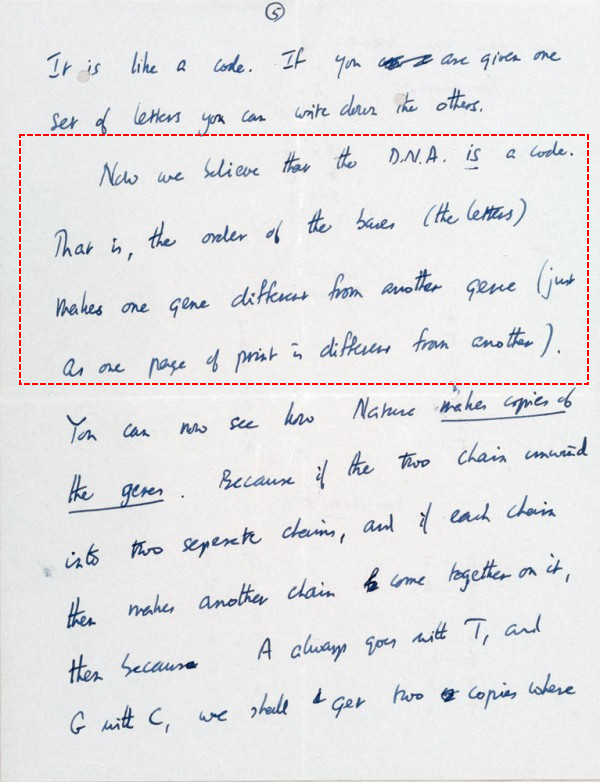
Figure 2: Crick’s March 19, 1953 letter, p. 5 with a highlight (Fair use)
Yes, alphanumeric code (so, language!), algorithms (so, purpose!), i.e. intelligent design of life from the first living cell on. Including, us. No wonder the dean of the so-called New Atheists was forced to admit that Biology studies complicated things that give a strong appearance of design.
1947 saw the advent of the transistor age, allowing storage of a single bit of information in a tiny electronic wonder. We have since advanced to computers based on silicon chips comparable in size to a thumb-nail, with millions of transistors. These microchips and support machinery process many millions of instructions per second and have storage capacities of many gigabytes. Coded electronic communication signals routinely go across millions of miles through the solar system. Every one of these devices and systems required careful design by highly educated engineers, scientists and programmers. The living, self-replicating cell’s sophistication dwarfs all of these; yet we question the all-knowing God, the author of life.
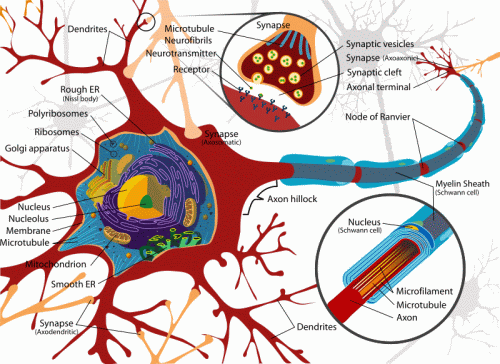
Next, Mr. Robinson and others inevitably appeal to our known duty to truth, right reasoning, fairness, prudent judgement, etc. But, where did that inner moral law (testified to by our consciences) come from? Surely, it is not a delusion; or else responsible, freely rational discussion would collapse into nihilistic chaos: might and manipulation (= “power and propaganda”) make ‘right,’ ‘rights,’ ‘justice,’ ‘truth,’ ‘knowledge’ etc. Instead, our conscience-guarded hearts and minds clearly show the Creator’s design that we freely live by the light and law of truth and right.
Such considerations – and many more – point us to the only serious candidate for the source of reality that can bridge IS and OUGHT: the inherently good (and wise) Creator God, a necessary and maximally great being. Who is fully worthy of our loyalty and of humble, responsible, reasonable service through doing the good. Then, we may readily draw out the classic understanding of God described in scripture and studied in systematic theology: all-good, eternal, creator and Lord with sound knowledge and full capability to work out his good purposes in the right way at the right time. [Cf. Grudem, at Web Archive, here.]
Moreover, what we most of all need to know about God is taught by Jesus the Christ, recorded in scripture within eye-witness lifetime then accurately handed down to us for 2000 years now, at fearsome cost: the blood of the martyrs. Martyrs, who had but one incentive: that they directly knew and must peacefully stand by the eternal truth – cost what it will. They refused to be frightened by dungeon, fire or sword, much less mere rhetoric. Why would thousands die horribly to promote a known lie?
[I add, Strobel on the Case for Christ:]
Their record is that Christ is the express image of his Father, Logos – Cosmos-ordering Reason himself, prophesied Messiah, the Saviour who in love died for us on a cross. He rose from the dead as Lord with 500 eye-witnesses, precisely fulfilling over three hundred prophecies that were long since recorded in the Old Testament. (See esp. Isaiah 52:13 – 53:12, c. 700 BC.) He ascended to his Father in the presence of the apostles. He shall return as eternal Judge, before whom we must all account. (Yes, professing and “backsliding” Christians too.) The Bible also records Jesus’ prayer for us: “this is life eternal, that they might know thee the only true God, and [“thy Son”] Jesus Christ, whom thou has sent.” [John 17:1- 5, cf. 3:16.]
That is the truth witnessed by the church, whether it was 33 AD in Jerusalem before an angry Sanhedrin, or 50 AD before the laughing Athenians (who had built a public monument to their ignorance of God), or today . . .>>
So, Mr Carroll, no, it is not so that “everyone knows that God doesn’t exist.” Indeed, just the opposite is true: arguably, millions, having met and been transformed by God, know God. They don’t just know about him.
Perhaps, it is time for a more sober-minded discussion on the roots of reality. END
F/N: For reference, I attach, first on turning back at the brink:
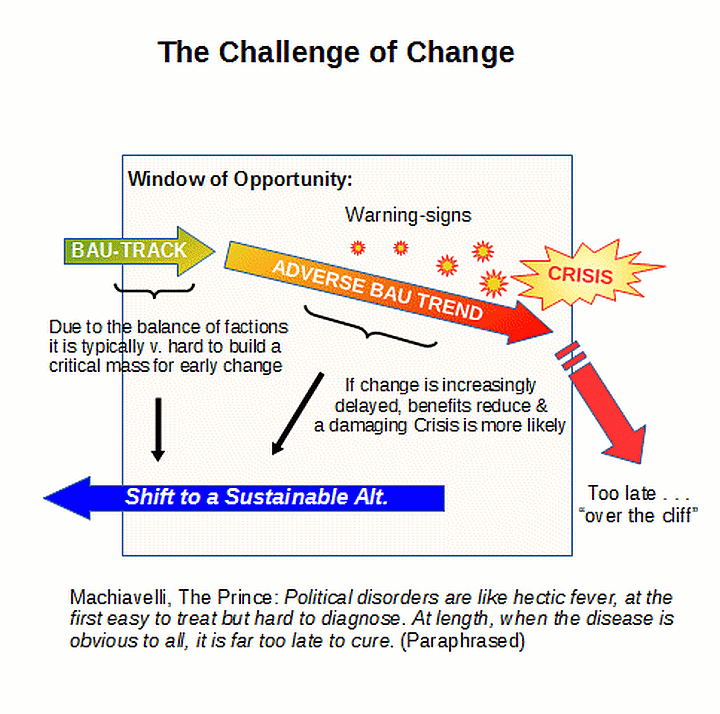
Next, on the Overton Window (vs Plato’s cave of manipulated shadow-shows:

Then, on a model of key spheres and sources of influence:

Then, on a model of political possibilities, drawing out the significance of Constitutional Democracy:

Also, on law:
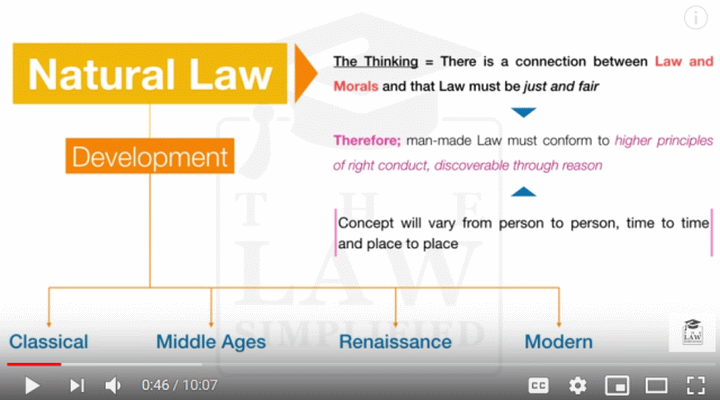
Noting Augustine and Aquinas:
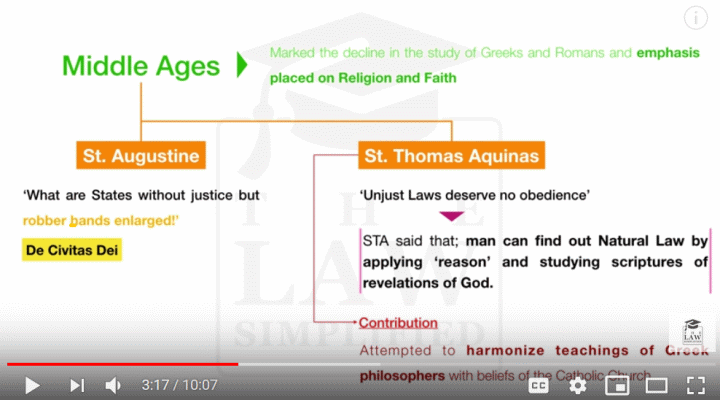
And Aquinas on law in general:
